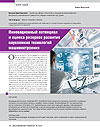

According to the authors, external and internal challenges of Russia, its geopolitical position, as well as Jesuit Wester Russophobia encourage our country to join the group of undisputed leaders of global economic, social and political development. At the same time, preservation of production relations, existing in our socio-economic system now, is a powerful brake on the way of scientific and technological progress and causes significant underdevelopment of the societyэs productive forces. Such a state of productive force does not provide necessary qualitative leap in the social development of Russia and creates unsatisfactory prospects for its safe, sovereign and holistic existence. A systematic approach to the nature and essence of the productive force proves that the main and the single productive force of our society can only be a man, his immediate work. At the same time, the scientific-technological revolution (STR) and the process of conditionally digital socialization (education) are the dominant conditions for effective development of productive force. However, the lack of balance between individuals’ education and upbringing inevitably leads to manifestation of scientific and technical extremism, which can create conditions for destruction of the biosocium itself. One of the main results of scientific-technological revolution is also transformation of scientific and technical production into the first stage of social reproduction, while industrial-manufacturing production is postponed to the second stage. In addition, the key to scientific-technical leap is creating conditions for effective early identification of individuals with the highest level of biological sociality inclinations (with an increased ability to education and training) and their subsequent highly effective socialization (first of all, we are speaking about development of scientific and creative thinking). The main scientific-technical and socio-political condition, providing maximum efficiency of socialization of such individuals and transformation of scientific-technical production into accelerator of social reproduction, is bringing in equivalence production relations and the productive force of society.
Продолжить чтение

















